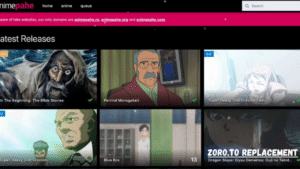BaddiesHub: The Ultimate Guide to the Controversial Platform Shaking Up Social Media
In the rapidly evolving digital age, platforms emerge overnight and go viral before most people even know they exist. One such platform that has stirred both fascination and outrage is BaddiesHub. Touted as a rising digital underground, BaddiesHub has carved out a controversial niche in the world of content sharing, often walking a fine line between edgy entertainment and outright illegality.
But what exactly is BaddiesHub, and why is it sparking heated debates online? From explicit content and influencer drama to legal challenges and ethical dilemmas, BaddiesHub represents a modern flashpoint in the conversation about digital freedom and responsibility. This article aims to explore the platform from every angle—how it works, who uses it, the controversies surrounding it, and what its presence means for the future of social media.
Whether you’re a curious observer, concerned parent, or active social media user, understanding BaddiesHub is essential to staying informed about current internet trends. Let’s dive into the murky waters of this platform and uncover the facts behind the frenzy.
What is BaddiesHub?

BaddiesHub is a relatively new, semi-anonymous digital platform that has exploded in popularity thanks to its reputation for uncensored and often NSFW content. Unlike mainstream platforms such as Instagram or TikTok, where moderation is enforced through community guidelines, BaddiesHub thrives in a gray zone where traditional boundaries are blurred. The site typically hosts clips, images, and private content—often featuring influencers, models, and sometimes even unknowing individuals.
What makes BaddiesHub especially unique is its crowdsourced content model. Users upload media, often without verifying ownership or consent, making it a hotspot for leaked OnlyFans videos, controversial influencer moments, and even private recordings. The appeal lies in the “exclusive” nature of the content, which fuels the voyeuristic tendencies of internet culture.
The user base skews young and digital-savvy, typically ranging from late teens to early 30s. Many are drawn by curiosity or peer influence, while others treat it as a source of viral content. Unlike traditional platforms that thrive on community engagement, BaddiesHub operates in a more transactional and anonymous format, which adds to its allure but also heightens concerns about privacy and legality.
Controversies and Legal Challenges
BaddiesHub has faced intense scrutiny from legal authorities, digital rights organizations, and even major social media platforms. One of the biggest controversies involves unauthorized content distribution. Much of the material on BaddiesHub is believed to be uploaded without the creator’s consent, violating copyright laws and personal privacy rights. This has led to numerous takedown requests and potential lawsuits from creators whose content was pirated.
In addition to copyright infringement, data privacy is a major concern. Leaked videos and personal photos raise questions about hacking, revenge content, and deepfakes—all of which have appeared on the platform at various times. Victims often report that their content was scraped from other subscription-based platforms, like OnlyFans or Patreon, and redistributed for free, undermining both their income and personal safety.
Authorities in various countries have started investigating BaddiesHub’s operations, particularly in jurisdictions where data protection laws are more stringent. Some ISPs have even begun blocking access to the site, especially in regions where it violates obscenity laws or digital copyright rules.
Despite legal threats, BaddiesHub continues to operate by shifting its domain names or going dark temporarily before reappearing. This cat-and-mouse game between digital regulators and underground platforms highlights a deeper issue: the lack of enforceable global internet laws capable of managing the rapidly evolving nature of content sharing online.
The Influence of BaddiesHub on Digital Culture
In today’s influencer economy, where digital presence equates to currency, BaddiesHub has become a wildcard. For some creators, it’s a source of exposure—albeit unauthorized—while for others, it’s a threat to their digital reputation. The platform represents a cultural shift toward content virality over creator rights, and it’s changing the way people think about fame, content ownership, and internet ethics.
Interestingly, viral content from BaddiesHub often migrates to mainstream platforms like Twitter, Reddit, and Telegram. This cross-pollination amplifies its reach, making it nearly impossible to contain. A leaked video might surface on BaddiesHub, trend on Twitter within hours, and become a meme or scandal by the next day. This has created a feedback loop where BaddiesHub acts as both source and amplifier of controversial digital moments.
Moreover, the platform has blurred the lines between fame and infamy. A previously unknown creator can become instantly recognizable (and not always for positive reasons) if their content trends on BaddiesHub. In this ecosystem, ethical lines are often ignored in favor of virality and engagement, raising concerns about the long-term impact on mental health, consent culture, and the integrity of online communities.
BaddiesHub’s rise also signals a new kind of digital subculture—one that thrives on exclusivity, shock value, and anonymity. As such, it both reflects and shapes the darker edges of today’s internet behavior.
Ethical Implications and Internet Safety
While many users flock to BaddiesHub for entertainment, the ethical implications cannot be ignored. One of the most pressing issues is non-consensual content distribution. Many of the individuals featured on the platform didn’t authorize their content to be shared—some may not even know it’s been uploaded. This raises major ethical red flags and legal liabilities for both uploaders and the site itself.
Anonymity on BaddiesHub further complicates the situation. While it protects users’ identities, it also emboldens harmful behavior. The lack of accountability has led to a surge in revenge content, doxxing, and cyberbullying—creating a toxic environment that disproportionately affects women and marginalized groups. It also increases the risk of exploitation, especially of minors who may not fully grasp the consequences of sharing personal media.
Parents, educators, and digital safety advocates are now warning about the potential dangers of BaddiesHub. From exposure to explicit content to the psychological effects of online harassment, the risks are real and growing. It’s crucial to promote media literacy and digital consent education, particularly among young users, to prevent further harm.
As internet freedom and privacy debates continue, BaddiesHub serves as a cautionary tale about what happens when technology outpaces regulation. It’s a wake-up call for users, creators, and lawmakers to rethink how we define and protect digital boundaries.
Conclusion
BaddiesHub is more than just another viral platform—it’s a symptom of a larger problem in the digital ecosystem. Its rise underscores the growing gap between content creation and content control, between online fame and personal privacy. While it may offer short-term viral thrills, the long-term consequences—legal, ethical, and societal—are becoming impossible to ignore.
As the internet continues to evolve, platforms like BaddiesHub challenge us to reconsider our values around consent, ownership, and safety in the digital world. The question isn’t just whether BaddiesHub will survive legal crackdowns—it’s what its popularity reveals about our digital future
FAQs
Is BaddiesHub legal to use?
No. Many regions consider it illegal due to the unauthorized distribution of copyrighted and explicit material.
Can content from BaddiesHub be shared legally?
Only if the content is publicly available and shared with full consent from the creator. Otherwise, it’s likely illegal.
Is BaddiesHub safe for teens or minors?
Absolutely not. The platform hosts explicit and often illegal content, making it highly unsafe for minors.
Why is BaddiesHub trending on social media?
Its controversial nature and viral leaks often lead to trending hashtags, especially when influencers or celebrities are involved.
Are there legitimate alternatives to BaddiesHub for adult content?
Yes. Platforms like OnlyFans, Fansly, and Patreon allow adult content under strict consent and copyright guidelines.













Post Comment